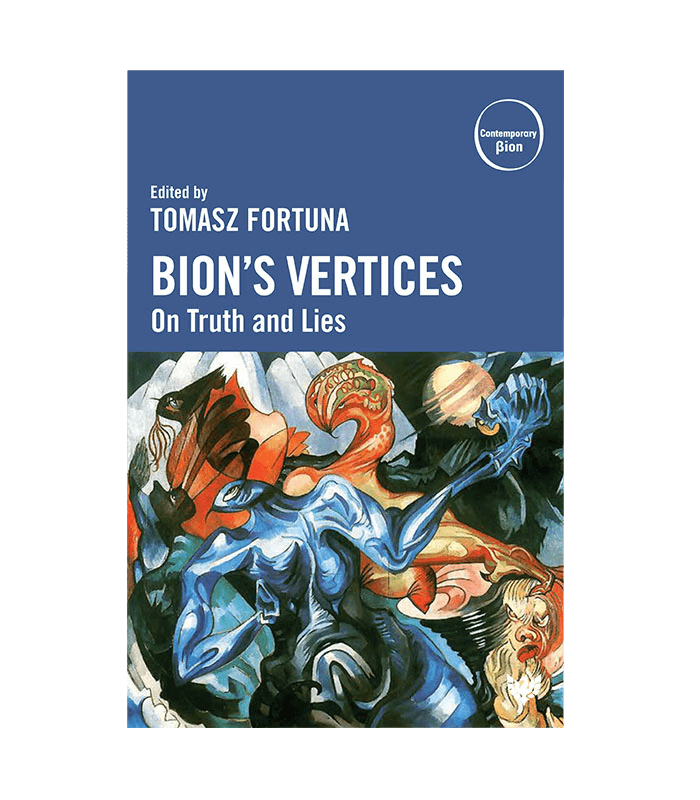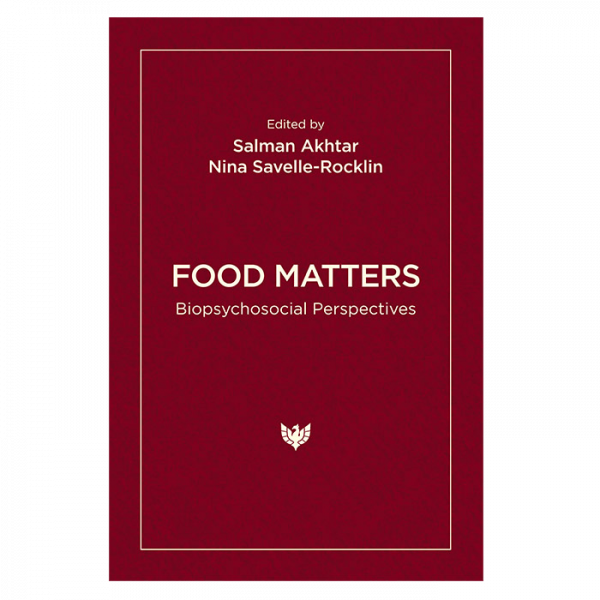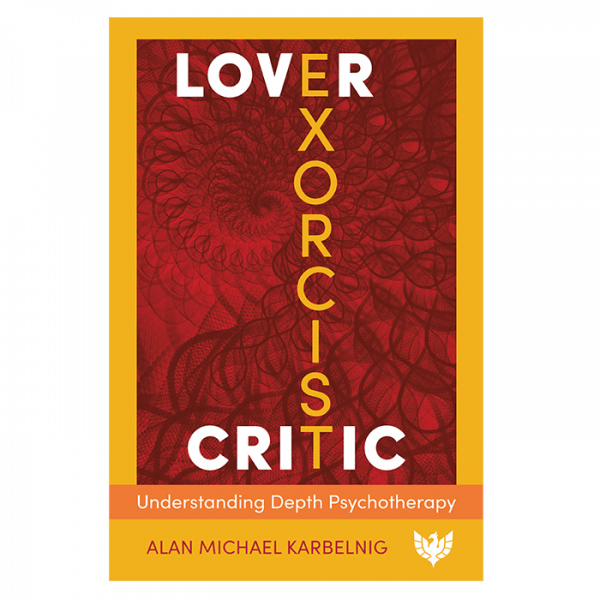Bion’s Vertices: On Truth and Lies is the inaugural book of the Contemporary Bion series. It raises many key questions, such as: What is the place of truth and lies in psychoanalytic discourse? What are the consequences in terms of collusion and communication? How can a ‘lie’ carry a meaning? The book features penetrating insights from Nicola Abel-Hirsch, Joseph Aguayo, David Bell, Avner Bergstein, Ronald Britton, Robert Caper, Roosevelt Cassorla, Judy K. Eekhoff, Denis Flynn, Tomasz Fortuna, Antònia Grimalt, Alberto Hahn, R. D. Hinshelwood, Monica Horovitz, Dimitris J. Jackson, Paulo Cesar Sandler, Carlos Tabbia, and Margot Waddell. Their inspiration and starting point is Bion and his work but the vertices are dynamic and involve free expression of their personal perspectives, communication styles, and approaches, including Freudian, Kleinian, mathematical, philosophical, scientific, and poetic.
Their chapters are divided into three parts, which investigate the truth/lie domain, emotional change and growth, and creativity in relation to truth and lies. The wide-ranging discussions include chapters on aesthetic processes in poetry and psychoanalytic thought, the protective function of lying, misunderstandings, chaos, the analyst’s mind, knowledge, representation, perversions, and propaganda. These powerful contributions are essential reading for practising clinicians, academics, and students.





 Dr Tomasz Fortuna is a psychoanalyst with the British Psychoanalytical Society and a founding member of the Hanna Segal Institute for Psychoanalytic Studies. He worked as a psychiatrist in the NHS for sixteen years and is now at the Portman Clinic and in private psychoanalytic practice. He teaches and supervises at the Tavistock and Portman Clinics, Institute of Psychoanalysis, University College London, and abroad, and was a visiting professor in psychoanalysis at the psychiatry department of University Putra Malaysia. He was a member of the Bion in Marrakech seminar and taught Klein and Bion in the UK, China, and South Korean. His professional interests include the relationship between psychoanalysis and the arts, and the understanding of severe emotional disturbance and criminal behaviour. He has published several articles and chapters, co-authored with R. D. Hinshelwood, Melanie Klein: The Basics (Routledge, 2017) and co-edited with Ignes Sode, Mapping the Landscape: Explorations in Psychoanalysis, by Priscilla Roth (Routledge, 2025).
Dr Tomasz Fortuna is a psychoanalyst with the British Psychoanalytical Society and a founding member of the Hanna Segal Institute for Psychoanalytic Studies. He worked as a psychiatrist in the NHS for sixteen years and is now at the Portman Clinic and in private psychoanalytic practice. He teaches and supervises at the Tavistock and Portman Clinics, Institute of Psychoanalysis, University College London, and abroad, and was a visiting professor in psychoanalysis at the psychiatry department of University Putra Malaysia. He was a member of the Bion in Marrakech seminar and taught Klein and Bion in the UK, China, and South Korean. His professional interests include the relationship between psychoanalysis and the arts, and the understanding of severe emotional disturbance and criminal behaviour. He has published several articles and chapters, co-authored with R. D. Hinshelwood, Melanie Klein: The Basics (Routledge, 2017) and co-edited with Ignes Sode, Mapping the Landscape: Explorations in Psychoanalysis, by Priscilla Roth (Routledge, 2025).
Vic Sedlak, past President, British Psychoanalytical Society –
‘Bion is reputed to have said that the essential aim of psychoanalysis is to introduce the patient to the one person they spend their life with, namely their own self. In this outstanding book, Tomasz Fortuna has assembled a group of eminent psychoanalytic scholars who explore from various vertices the challenges of reaching and bearing such truth and the price we and our patients pay when we falter in this endeavour. Anyone who struggles to be psychoanalytical with their patients (and this should be anyone who chooses to work this way) will benefit greatly from this outstanding collection.’
Lia Pistiner, Supervising and Training Analyst and Full Member, Argentine Psychoanalytic Society –
‘Psychoanalysis owes one of its most profound and original moments to Bion. He conceives the mind as an expanding universe, evolving from its primitive state towards mental growth or mental decline. Bion considers psychoanalysis a powerful and disruptive idea that requires a container to be contained. In this first book of the Contemporary Bion series, the authors, in their distinctive contributions, offer such containment for the reader, in an open attitude, whilst considering Bion’s ideas, which indicates an innovative approach to the theoretical and clinical work of the analyst.’
Jani Santamaría Linares, Director of A-Santamaría Psychoanalysis Mexico, Training and Supervising Analyst of child, adolescent, and adult psychoanalysis, APsA member –
‘Tomasz Fortuna’s book, Bion’s Vertices: On Truth and Lies, is a deeply thoughtful and remarkably sensitive account of the work of sixteen internationally acclaimed psychoanalysts. Each contributor explores and illustrates Bion’s evolving ideas through vivid clinical examples and a range of original, fertile thinking. The chapters collected here possess clear contemporary relevance and will serve as a vital resource for colleagues seeking to engage with key aspects of Bion’s thought in diverse contexts and enquiries.’
Michael Brearley, Distinguished Fellow, past President, British Psychoanalytical Society –
‘Bion was, and is, a prophet, to a profession and beyond. “Vertices” are meeting-points of lines – where lines of thought interact, from where different points of view may be found. Like him, the writers in Bion’s Vertices disturb and stretch us, question and dismantle old landmarks, and open us to new ones. Many of them also make the shock of Bion’s poetic and metaphysical modes of conveying his thoughts and findings less discombobulating; they convey the shock of the (still-)new in more soberly symbolic prose. They help us experience the frustrations of being lost, and then, precariously and provisionally, found. They give us a sense of Bion’s emphasis on both discipline and freedom. They celebrate his commitment to truth (and what we learn from lies, self-deceptions, and illusions, with their capacity for transformation), and his unique and radical contribution to our understanding of mind, creativity, and the potential lifelong growth of the self. As editor Tomasz Fortuna writes, they ‘follow the avenues [Bion] opened up for us [in] developing the work of Freud, Klein, mathematicians, philosophers, scientists, and poets.’